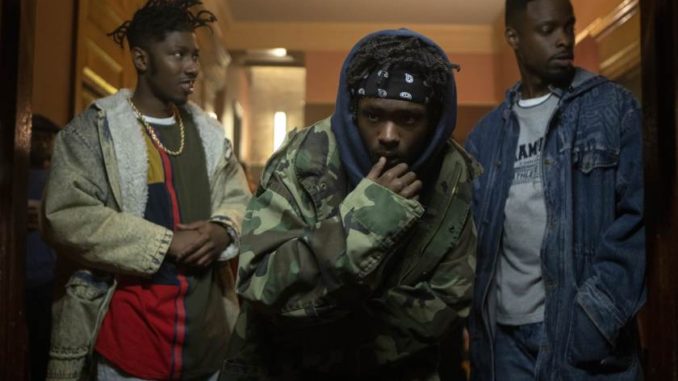
Wu-Tang: An American Saga is easily becoming one of the most compelling and auspicious limited series out. The anticipation of seeing the famed supergroup finally realize their Hip Hop dreams leaves viewers wanting more. The first season’s final episode, “Assassination Day” aired Wednesday, Oct. 23rd on Hulu.
Just like any of its other episodes, there are lessons throughout the inner-city drama. The tenth episode is a great example of how the power of fate can align people on the same path to fulfill a greater calling. The seeds that each member and associate of Wu planted in their early years led up to the ultimate formulation of the multi-member group.
Divine, who will eventually become the business manager of the group, chooses to trade in his life of drug-dealing for an education in business, finance and economics. Sha (Raekwon) is seeking a better life, as well. He returns to his religious roots to find himself. Bobby’s cousin, Gary (GZA) appears to be living a privileged life as a signed recording artist but in reality is unimpressed with the culturally clueless and misguided direction of the label.
Bobby (RZA) and Dennis ‘D-Love’ Coles (Ghostface Killah) walk a fine line between a nefarious existence and tapping into their higher selves, a concept that is continuously projected onto Bobby by the Five Percent Nation, a pro-black group that believes ten percent of the people in the world know the real meaning of humankind’s existence yet they keep this knowledge from 85 percent of the world in order to reserve control. The Five Percent Nation consists of the remaining five percent of the world that knows this knowledge and is willing to share it with the 85 percent that don’t.
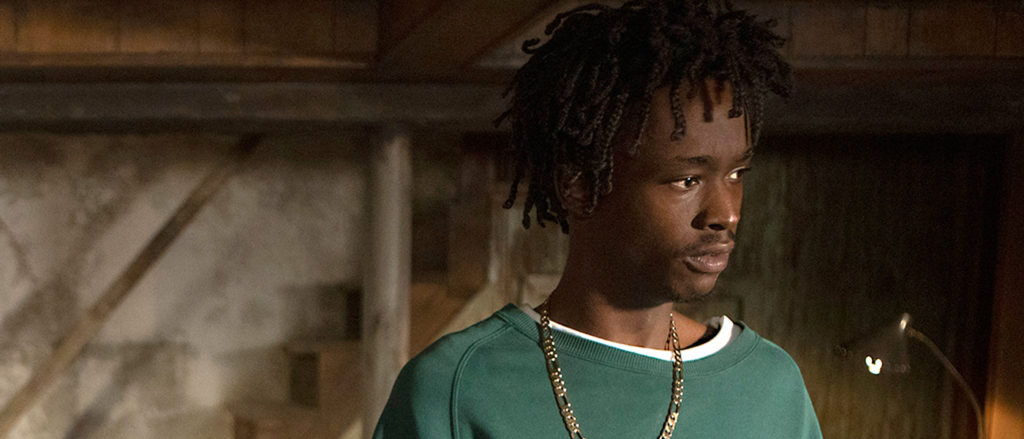
Sadly, while their presence was felt, we didn’t see that much backstory about two of the most prolific figures in the group, Shotgun (Method Man) and Ason (Ol’ Dirty Bastard). If there is any complaints about this series, it would be that it doesn’t have enough of a storyline for the two animated members.
The finale is all about alignment. It’s as if the universe intentionally caused chaos in the life of these men so that they would be forced to unite and think on a higher playing field. So, what are the lessons from this week’s episode?
3. A “No” Doesn’t Mean Never
The final episode starts off recapping Bobby losing his record deal with Tommy Boy Records. He takes the rejection hard, but not hard enough to make him stop trying. Bobby continues to make music with his friends. But, this time he’s set on doing it his way.
Unbeknownst to Bobby, an ambitious junior-level employee in the music business finds a tape of Wu-Tang songs. The tape gets into the hands of college students at NYU and finally reaches the ears of some major music executives, including Loud Records and SRC Records founder Steve Rifkind.

Bobby didn’t have to do much. Yet, the little he had to do was not an easy feat. For one, Bobby had to believe in himself enough to trust his instincts. Two, he needed to muster up the courage to continue the dream he started. While the ultimate battle was in his mind, the universe was working overtime to align his fate with his purpose. At the end of the day, the “no” from Tommy Boy Records didn’t mean never. It just mean’t not with them, not right now.
2. Use Mind Over Matter
Oftentimes, it’s easy to get caught up in a carnal state of mind when dealing with the many obstacles of life. In Wu-Tang, Bobby and Dennis are tested in this area when the bullheaded neighborhood terrorizer Attila robs Bobby of all his music in hopes to extort him of money. Bobby chooses to dance with the devil when he comes face-to-face with Attila and shoots him in the chest.
The aspiring producer had many chances to change his trajectory before coming to the resolution of violence. His cousin Gary warned him that he should consider using his words rather than the gun to solve his problems. An encounter with the Five Percent Nation also attempted to force Bobby to think about his actions. Despite this, Bobby chose the path of the gun. So, what was the consequence? Since he didn’t totally annihilate his enemy his life became in danger and now he, along with Dennis, are fleeing out of town to Ohio for refuge.
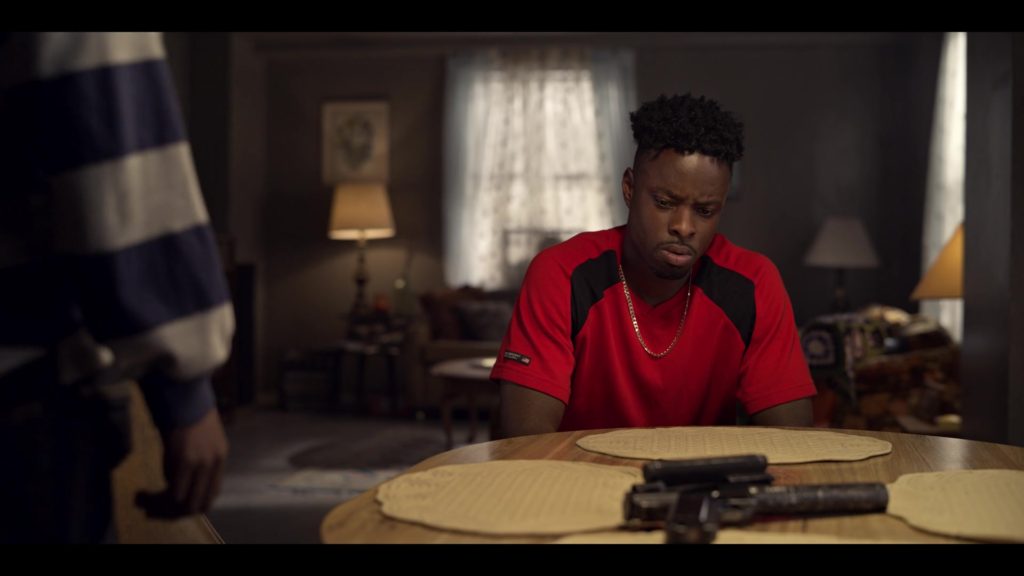
Some may believe that Bobby had no choice but to use violence. While it temporarily dismantled the threat, it backfired on him and made the situation worse. Hopefully, in Season 2, Bobby will realize that his mind is a way more powerful weapon.
1. Everything Happens For A Reason
Life can be cold-blooded. It changes in an instant and can be unpredictable. Like Jay-Z said “It was all good just a week ago”. This episode proved that with Dennis and Shurrie’s unplanned pregnancy and Shotgun (Method Man) resorting to drug-dealing for money. But for every ordeal, it was necessary that all of it happened in order to position people for the next level in their careers and personal lives.
Think about it. By Bobby losing his record deal he was able to hone his own style of music, which ultimately gave him more leverage and clout in the music business. The desperation of Sha (Raekwon), Divine and Shotgun to find a way to make a living put them in the position to really consider alternatives. They didn’t know it, but this was a setup.
It’s hard to come to terms with, especially when dealing with the issue of loss, but everything happens for a reason. Whether the reason is known is another question. Sometimes, things fall apart so that better things fall together. This doesn’t mean that the members of Wu-Tang passively sit back and wait for things to happen to them in hopes that the cosmic universe will deliver all the answers to their problems. Instead, they are held accountable for their choices. But, the correction that comes with accountability also plays as a measurement of exactly where their lives stand. Outside of the series, fans of Wu-Tang know that Divine and Power end up being in CEO positions of the group. Would this have ever happened if the money from drug dealing didn’t slow up or become too much of a risk?
The have been some critical pieces on the limited series with complaints that the show is not a good representation of Wu-Tang and comes off as a knock off The Wire. Other critics have said that there’s too much gangster crimes infused throughout the episodes and not enough focus on the music. What these critics fail to realize is that these men had lives before the Wu-Tang Clan even existed. They were trying to make ends meet so that came along with a lot of ill-fated choices and problematic situations.
It’s nice to see the fairy tale where people establish their success overnight. But, it’s even more intriguing when there is some kind of struggle involved. It’s nothing wrong with taking time to develop the characters and the story. In fact, it’s even more inspiring when fans can see how much people sacrificed to get to where they are.
The MouthSoap can’t wait for Season 2.
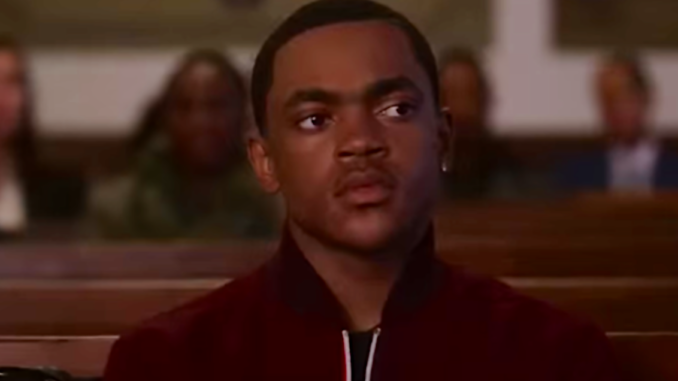
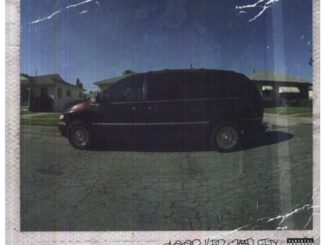


I love the series and this article is hella dope